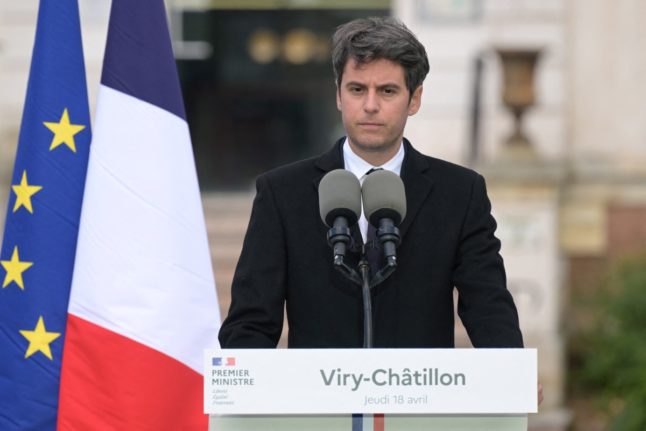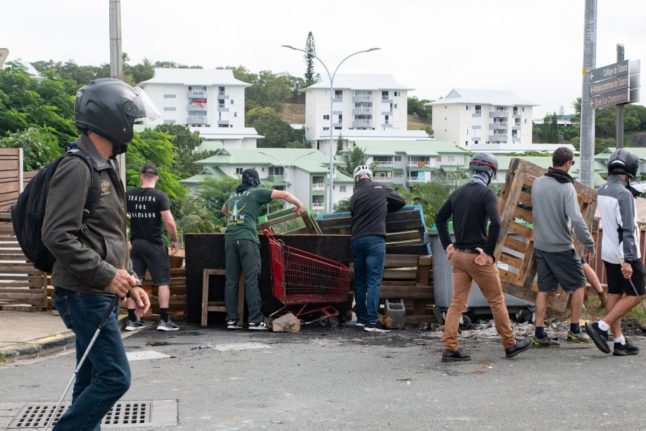France has in recent weeks been shaken by a series of attacks on schoolchildren by their peers, in particularly the fatal beating earlier this month of Shemseddine, 15, outside Paris.
The far-right Rassemblement National (RN) party has accused Attal of not doing enough on security as the anti-immigration party soars ahead of the government coalition in polls for the June 9th election.
READ ALSO Is violence really increasing in French schools?
Speaking in Viry-Chatillon, the town where Shemseddine was killed, Attal condemned the “addiction of some of our adolescents to violence”, calling for “a real surge of authority… to curb violence”.
“There are twice as many adolescents involved in assault cases, four times more in drug trafficking, and seven times more in armed robberies than in the general population,” he said.
Measures will include expanding compulsory school attendance to all the days of the week from 8am to 6pm for children of collège age (11 to 15).
“In the day the place to be is at school, to work and to learn,” said Attal, who was also marking 100 days in office since being appointed in January by President Emmanuel Macron to turn round the government’s fortunes.
Parents needed to take more responsibility, said Attal, warning that particularly disruptive children would have sanctions marked on their final grades.
OPINION: No, France is not suffering an unprecedented wave of violence
Promoting an old-fashioned back-to-basics approach to school authority, he said “You break something – you repair it. You make a mess – you clear it up. And if you disobey – we teach you respect.”
Attal also floated the possibility of children in exceptional cases being denied the right to special treatment on account of their minority in legal cases.
Thus 16-year-olds could be forced to immediately appear in court after violations “like adults”, he said. In France, the age of majority is 18, in accordance with the UN Convention on the Rights of the Child.
Macron and Attal face an uphill struggle to reverse the tide ahead of the European elections. Current polls point to the risk of a major debacle that would overshadow the rest of the president’s second mandate up to 2027.
A poll this week by Ifop-Fiducial showed the RN on 32.5 percent with the government coalition way behind on 18 percent.



 Please whitelist us to continue reading.
Please whitelist us to continue reading.
Member comments